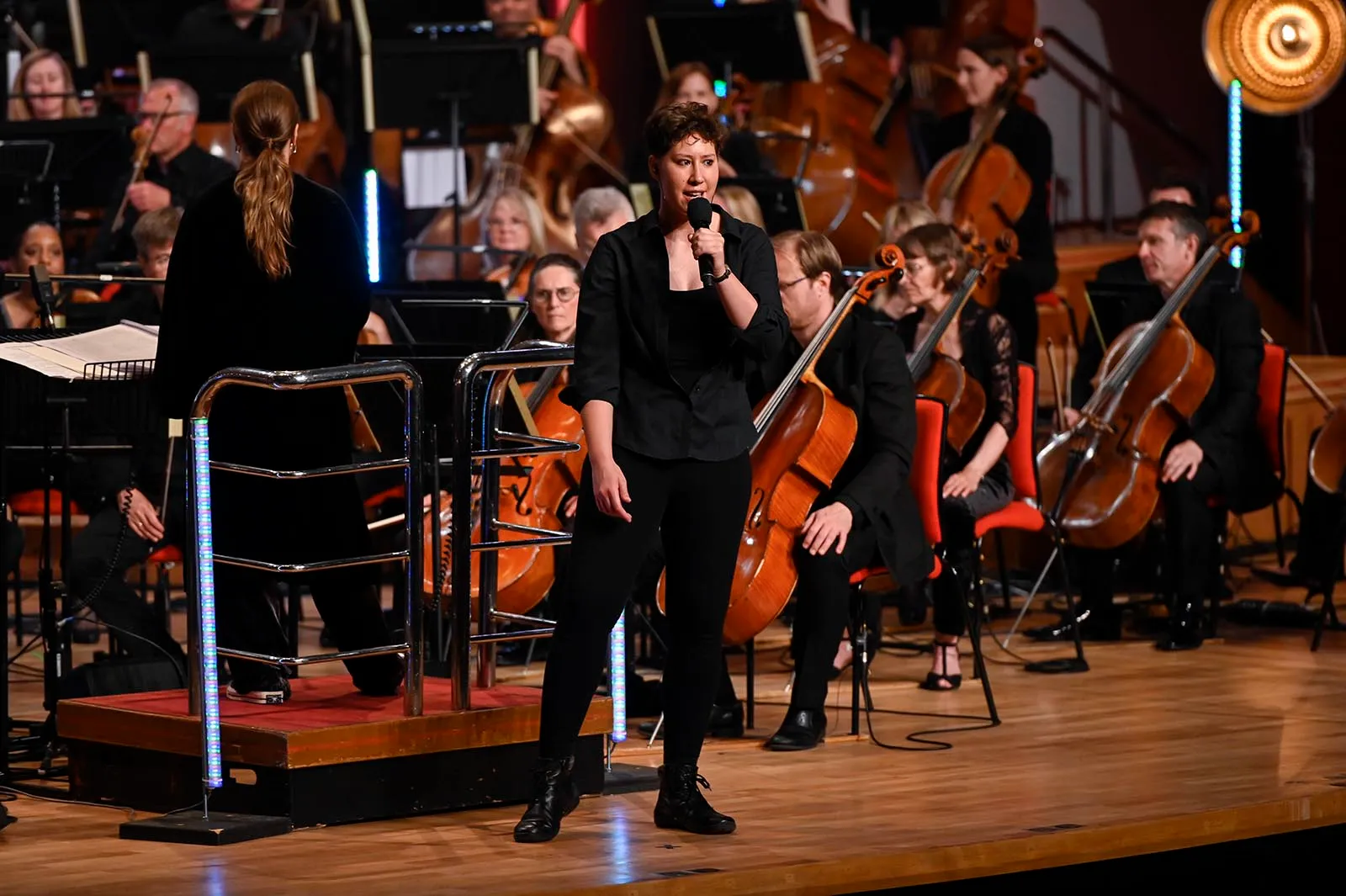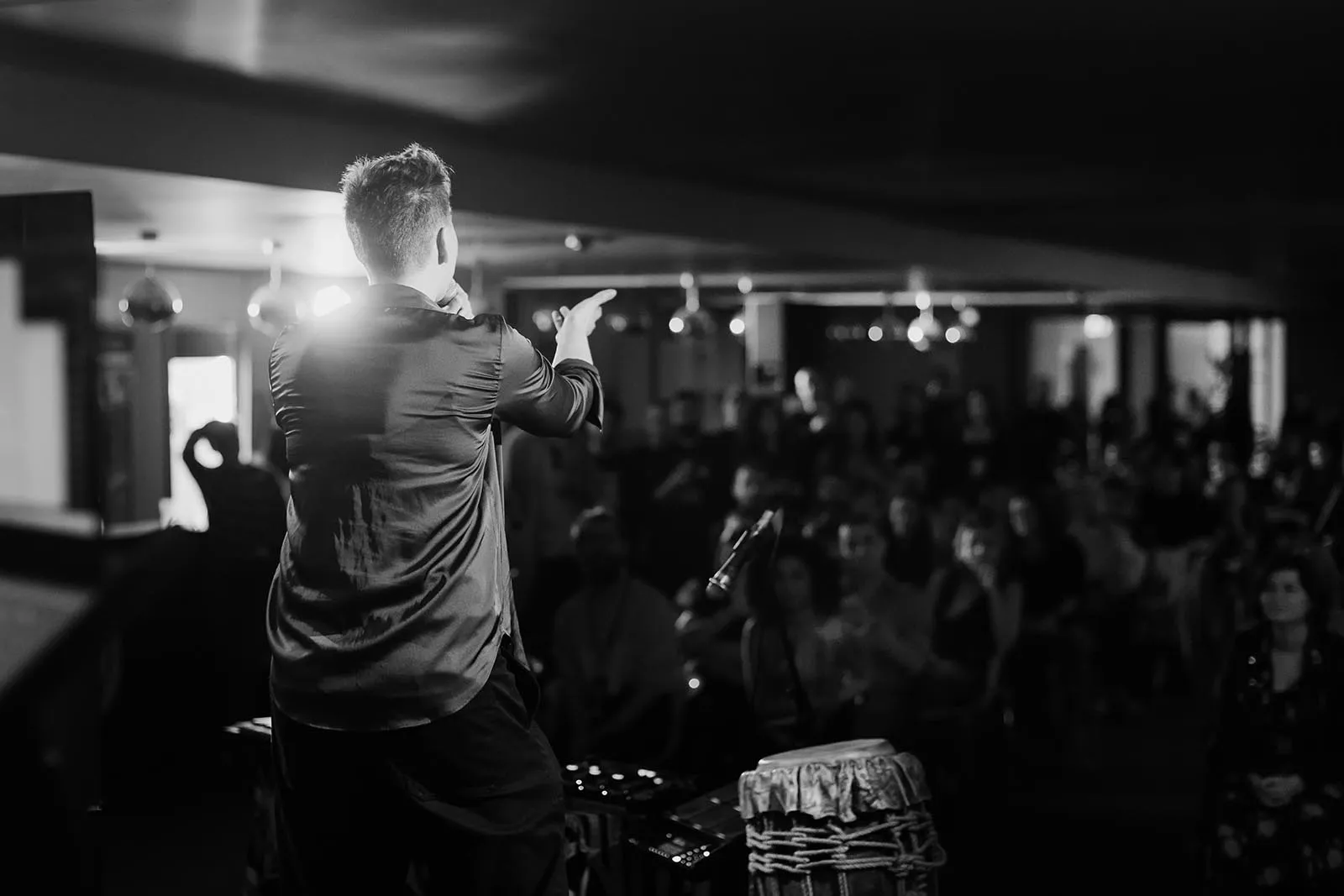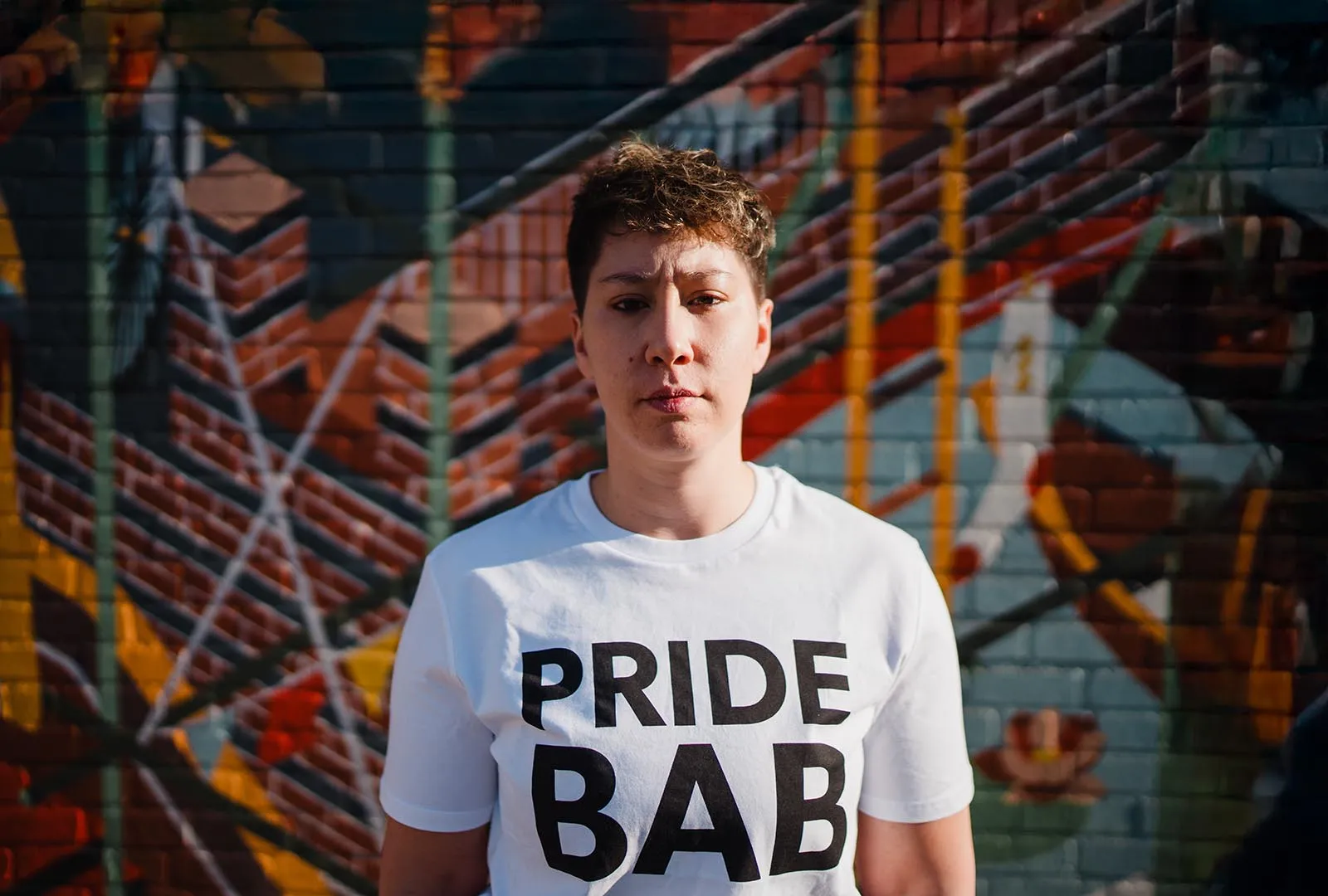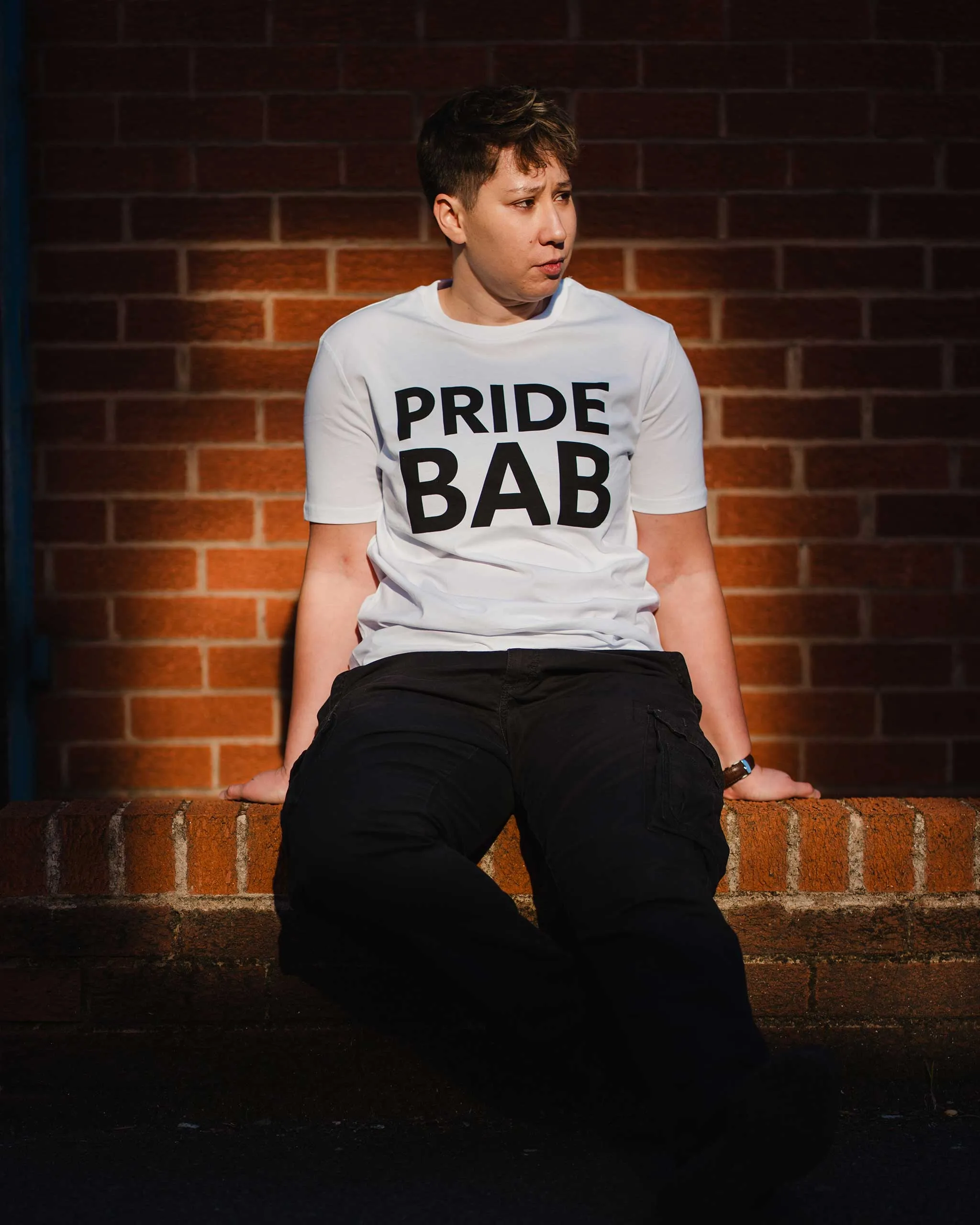Courtesy of Lee Allen
Spoken word artist Jasmine Gardosi returns to the Philippines with a beat in their chest and poetry on their tongue, reclaiming identity, heritage, and voice.
When Jasmine Gardosi first touched down in Manila, they weren’t expecting to cry. But as the plane doors opened and they stepped onto Philippine soil for the first time since they were three, something shifted. “I was bawling my eyes out,” they recall. “I was seeing people who looked like my mom, and I suddenly realized I’m home.”
Gardosi, a Birmingham-based, half-Hungarian, half-Filipino poet and beatboxer, is a former Birmingham Birmingham Poet Laureate. Their work, rooted in vulnerability and identity, moves audiences not just for its linguistic dexterity but for the raw, disarming honesty at its core.
Growing up mixed-race in the UK, Gardosi didn’t always feel like they belonged. “I looked different. People couldn’t place me, and that bothered them,” they share. They were often singled out, teased, and silenced. Tack on neurodivergence, queerness, and a then-undiagnosed case of obsessive-compulsive disorder, and you have a child trying to navigate the world without the language to explain themselves. “You start to shut up,” they share.

Yet poetry offered a way back to themself. One of their first pieces came from a place of urgency rather than craft. “I didn’t know what OCD was. I just wrote about what I was experiencing.” That poem, which they admitted they read while trembling at a school creative writing club, cracked open a door. “People said, ‘I related to that.’ And I realized the more vulnerable the piece, the more it needed to be written.”
Gardosi’s medium is not just poetry; it’s also performance. Their style combines spoken word with beatboxing and music to create a multisensory experience. In their acclaimed one-person show “Dancing to Music You Hate,” they speak openly about their genderqueer identity, neurodivergence, and cultural dissonance, all punctuated with a sonic texture that makes their stories not only heard but felt.
They liken nerves onstage to excitement. “If you’re not nervous, you should be worried. That means you don’t care,” they say. “But I’ve learned there’s no replacement for repetition. The first time might suck. By the tenth, it’s your power.”
Their return to the Philippines wasn’t just personal. Funded by the West Midlands Combined Authority, their trip was part of a project aimed at building creative connections abroad. Through events like “Third Thursdays” by poet-organizer Leandro Reyes and in partnership with the literary group Likhaan, they stepped into a welcoming scene of Filipino artists, organizers, and storytellers.

“I didn’t meet any blood relatives when I came back,” they reflect. “But I found family. The poetry community felt familiar, even though we had no mutual friends. That’s the magic of spoken word. It’s sacred.”
They were also honored to help pioneer something new: the Philippines’ first organized poetry slams. “Slam poetry gave me so much in the UK,” they say. “To help create that space here, with Filipino poets, to watch people perform for the first time, it was electric.”
Although Gardosi actively leads workshops around the world, they don’t see themselves as a teacher. “I’m a facilitator,” they emphasize. “My job isn’t to say I’m better than you, it’s to help trust your own creative instincts.” Through workshops with Likhaan and other youth programs, they offer the same encouragement they once needed.
“There’s no greater creative lubricant than trust,” they say. “The best poems I’ve written came when I felt trusted. That’s what I want to give to others.”

As a genderqueer poet, Gardosi is also reclaiming space in both Western and Filipino contexts. “When I was 18, I prepared to never fall in love with a woman, just to avoid the same,” they admit. Now, their poetry speaks that love aloud, on broadcasts and global stages.
Their time in the Philippines deepened this connection to their heritage, especially to the pre-colonial presence of the babaylan, who are genderqueer spiritual leaders. “Being genderqueer is a privilege,” they say. “I carry both masculine and feminine worlds inside me. That’s not confusion, it’s perspective.”
For Gardosi, poetry is the medium through which multiplicity becomes magic. And it’s that magic they hope to keep amplifying in every corner of the world. “The thing that makes you different,” they say, “will help you make a difference.”
If their journey proves anything, it’s that what once made them feel alone is the very thing that connects with thousands. Through words, rhythm, and radical honesty, they aren’t just performing. They are healing. And as they do, they are bringing others along with them.
- Who Uses Typewriters Anyway: Each Piece in France Pinzon’s Collection Has Its Own Story
- Vogue Voices: Fran Ayala Rock on Taking Pride and Joy in People and Punchlines
- Vogue Voices: The “Chinoy” and “Lannang” Experience, and Other Reflections on Being Chinese-Filipino
- Vogue Voices: Finding Life and Sisterhood in a Cowgirl Roundup
